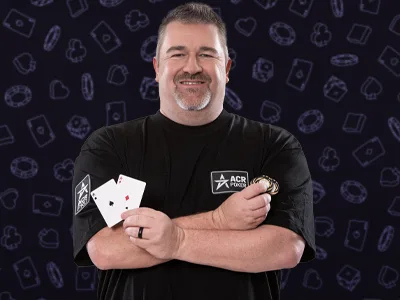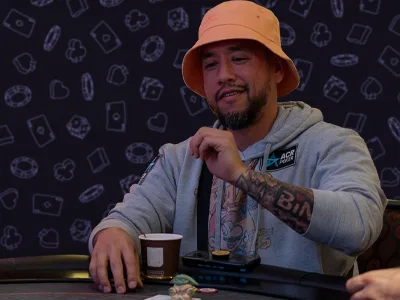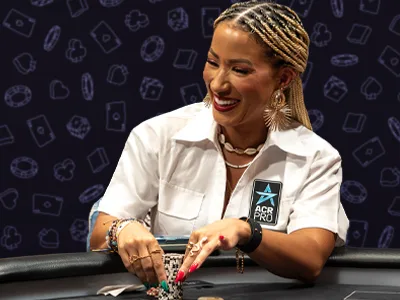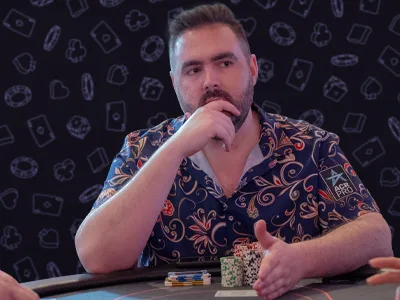Rebuy events are a great opportunity to build a stack, but success comes from adapting your aggression In Pot-Limit Omaha (PLO) tournaments that offer rebuys and add-ons, building a sound strategy early can make a significant difference in your tournament success. Unlike freezeouts, where every chip lost is final, rebuy formats give you more flexibility
Category: Advanced
Short-Handed vs. Full-Table Strategy in PLO
Ultimately, success in PLO depends on reading the table and adjusting accordingly Playing Pot-Limit Omaha (PLO) at a short-handed table versus a full-ring table requires distinct strategies due to differences in hand ranges, player tendencies, and pot dynamics. While the core mechanics of PLO remain the same, your approach should shift significantly based on how
Mucking After the Flop in Texas Hold’em: Key Indicators for Folding
Post-flop folding isn’t a weakness; it’s a disciplined move that allows you to preserve your stack and wait for better spots Knowing when to fold after the flop in Texas Hold’em can save players from bleeding chips unnecessarily. While it’s tempting to stay in a hand with hope for a miracle turn or river, experienced
Identifying Myths about Small Pocket Pairs in Poker
Blindly following the idea that small pocket pairs are always profitable can lead to mistakes Small pocket pairs often create a lot of debate among poker players. While they can be powerful in the right situations, many common beliefs about these hands don’t hold up under scrutiny. Understanding the truth about small pairs like 2-2
How To Handle the Short Deck “All-in or Fold” Dynamic
Timing your moves right can be the difference between busting early or building a stack for a deep run Short Deck poker, also known as 6+ Hold’em, is known for its fast pace and action-heavy dynamics. Among the most critical features of the game is the “all-in or fold” scenario, especially during mid-to-late stages of
Texas Hold’em Mucking and Hand Ranges: Finding the Sweet Spot
Combining smart mucking with thoughtful hand range planning makes you a tougher opponent In Texas Hold’em, knowing when to muck your cards and how to play your hand ranges effectively can make a major difference in your results. Mucking, or folding your hand without showing it, is a quiet but powerful part of the game.
The Importance of Bankroll Management in Heads-up Texas Hold’em
Managing your bankroll well means you’ll be ready to keep playing and bounce back when your luck turns around Bankroll management is one of the most important factors in achieving long-term success in heads-up Texas Hold’em. Unlike full-ring or even six-max formats, heads-up poker is highly aggressive and fast-paced, which means swings in results can
Advanced Mucking Techniques in Texas Hold’em: Knowing When To Fold’em
The best players treat mucking as a way to keep their strategies under wraps Mucking in Texas Hold’em refers to discarding your cards without showing them, and while it may seem like a basic part of the game, advanced players know how to use it as a subtle tool. Knowing when and how to muck
Understanding Pot Equity and Its Impact in Short Deck Hold’em
Mastering pot equity in Short Deck Hold’em requires practice and understanding how the deck changes hand strengths Pot equity is a key concept in any form of poker, but in Short Deck Hold’em, it takes on a slightly different meaning due to the changes in hand values and probabilities. Understanding pot equity means knowing the
Improving Your Texas Hold’em Mucking Skills With Practice and Analysis
Being disciplined with your folds can quietly boost your overall performance Improving your mucking skills in Texas Hold’em might not be the first thing players focus on, but it can make a noticeable difference in live games. Knowing when and how to muck your hand efficiently is part of managing your table image, staying sharp
When To Be Aggressive or Passive in Heads-up Texas Hold’em
Staying flexible is what separates average players from skilled heads-up competitors Knowing when to be aggressive or passive in heads-up Texas Hold’em is one of the keys to winning consistently. With only two players at the table, every hand is a battle, and the dynamics shift compared to full-ring games. Understanding your opponent and adjusting
Essential Poker Math for Small Pocket Pairs in Texas Hold’em
Understanding math principles helps turn small pocket pairs into a smart, strategic part of your game Playing small pocket pairs in Texas Hold’em can be profitable, but it takes a solid understanding of the math behind them. These hands—like twos through sixes—often don’t win on their own. Their true value comes from hitting a set,














